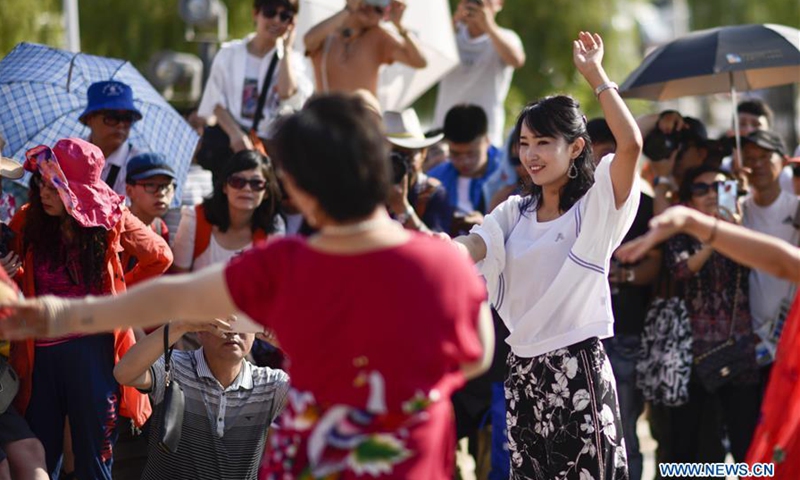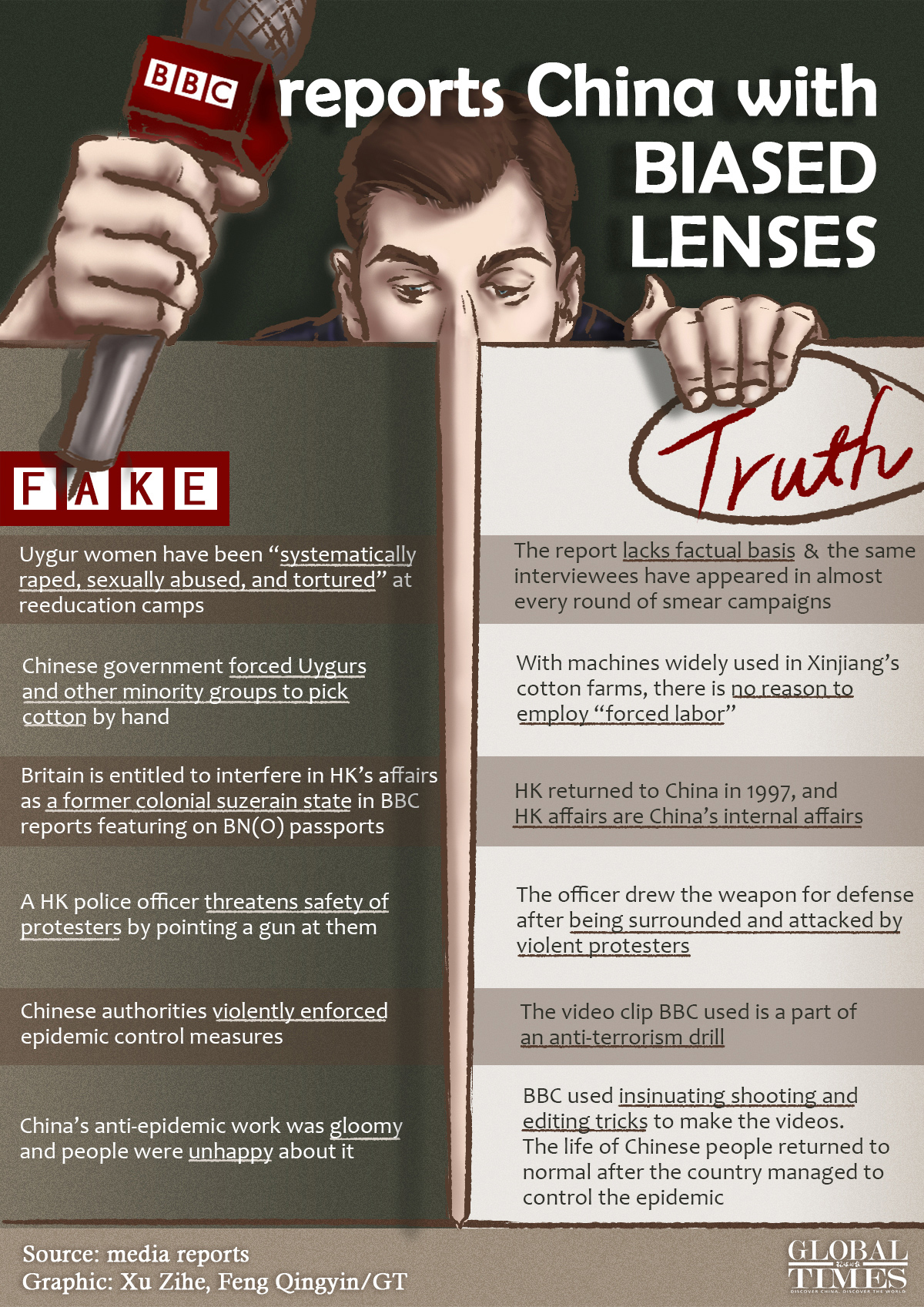


Tourists and local residents dance in the old town of Kashgar, northwest China's Xinjiang Uygur Autonomous Region, July 11, 2018.(Photo: Xinhua)
After China pulled BBC World News off the air for serious content violation, the BBC seemed to go astray further on making false China reports especially regarding the Xinjiang Uygur Autonomous Region. The BBC recently released a report twisting southern Xinjiang officials' efforts to help impoverished villagers go outside the region and earn a better living, calling the well-intentioned move "evidence of coercion."
The BBC report, which was released on Tuesday, rummaged a 14-minute video broadcast by China Central Television in 2017 on how local officials in Pishan county of Hotan Prefecture in southern Xinjiang persuaded villagers to work in East China's Anhui Province. And by citing a professor, the BBC report interpreted the video as evidence of China's "system of coercion" to transfer ethnic minorities into factories far from their homes.
The story was written by John Sudworth, who is infamous in China for his biased China reporting.
The video footage, which was seen as exclusive "evidence" by BBC, was part of a series reports broadcast by the CCTV in 2017, titled "Girls in Pishan going outside: Is the destiny pre-determined or self-made."
The video began by telling the background story that Anhui and Pishan worked together to help villagers in Pishan work in Anhui and local officials were introducing the program to villagers, who had never been outside of Xinjiang for work.
The reports also recorded the changes of Buzaynap, a 19-year-old girl in Pishan before making up her mind to work in Anhui.
Sudworth cherry-picked facts and expressions of Buzaynap and interpreted them as "evidence" for China using poverty alleviation as a disguise to "force" ethnic groups to work.
However, the second episode, which was released on July 20 2017, debunked Sudwork's lies. It reported the lives of these girls in Anhui and the growth of Buzaynap - from a shy girl who had never left home to an able-minded worker.
The third episode which was released in 2019 focused on Buzaynap's return to her hometown during the Spring Festival holiday. With the money she earned, Buzaynap helped her family buy donkeys and sheep. A big smile can be seen on her face during the interview when she talked about the money she had earned.
At the end of the episode, it said that girls from Pishan who worked in Anhui had enjoyed a more colorful life - some of them chose to go back to school and some chose to work outside.
However, the BBC report failed to mention these. Instead of trying to reach these girls in the video, the BBC interviewed the infamous anti-China evangelical "scholar" Adrian Zenz in its report.

How does the BBC apply "results before evidence" principles when reporting on China? Graphic: Xu Zihe, Feng Qingyin/GT
Chinese netizens mocked that it seems "normal" for BBC to make such biased Xinjiang reports, "the more efforts it made to slander China, the more anger it would harvest when people finally find out about the truth," a netizen commented.
Some overseas netizens also pointed out the lies made by the BBC. Tom Fowdy, a British political and international relations analyst, listed all the three episodes of the reports on his Twitter account and asked Sudworth why he cherry-picked Buzaynap's story to "portray it as an atrocity and falsely claim she was separated from her family by force." No answer has come from Sudworth.

 Award-winning photos show poverty reduction achievements in NE China's Jilin province
Award-winning photos show poverty reduction achievements in NE China's Jilin province People dance to greet advent of New Year in Ameiqituo Town, Guizhou
People dance to greet advent of New Year in Ameiqituo Town, Guizhou Fire brigade in Shanghai holds group wedding
Fire brigade in Shanghai holds group wedding Tourists enjoy ice sculptures in Datan Town, north China
Tourists enjoy ice sculptures in Datan Town, north China Sunset scenery of Dayan Pagoda in Xi'an
Sunset scenery of Dayan Pagoda in Xi'an Tourists have fun at scenic spot in Nanlong Town, NW China
Tourists have fun at scenic spot in Nanlong Town, NW China Harbin attracts tourists by making best use of ice in winter
Harbin attracts tourists by making best use of ice in winter In pics: FIS Alpine Ski Women's World Cup Slalom
In pics: FIS Alpine Ski Women's World Cup Slalom Black-necked cranes rest at reservoir in Lhunzhub County, Lhasa
Black-necked cranes rest at reservoir in Lhunzhub County, Lhasa China's FAST telescope will be available to foreign scientists in April
China's FAST telescope will be available to foreign scientists in April